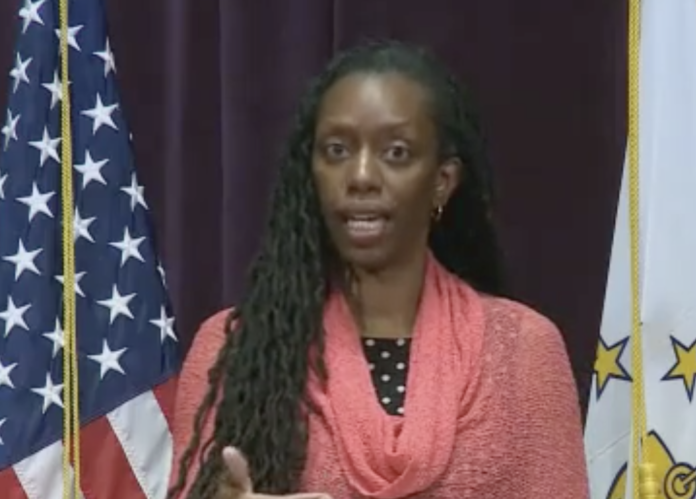
PROVIDENCE – State health officials are investigating an increase over the past two months in reported cases of Legionnaires’ disease in Rhode Island.
According to the R.I. Department of Health, between 2014 and 2020 there was an average of 10 cases during the months of June and July each year. From June 2 to Monday, there have been 30 cases of Legionnaire’s disease.
Twenty eight of the 30 people have been hospitalized, according to health officials. No common source of exposure has been identified.
“This is another example that underscores the value of RIDOH’s routine monitoring for communicable diseases,” said state Health Director Nicole Alexander-Scott. “We know that Legionella bacteria grow best in complex water systems that are not well-maintained. When this water becomes aerosolized in small droplets, such as in a cooling tower, shower or decorative fountain, people can accidentally breathe in the contaminated water. This is of particular concern now as some buildings’ water systems have been offline for a prolonged period due to the COVID-19 pandemic and are just now returning to service.”
Symptoms of Legionnaires’ disease start two to 10 days after breathing in the bacteria and include cough, shortness of breath, fever, muscle aches and headaches. It is spread from a contaminated water source through the air. It cannot spread from person to person.
Anyone who is diagnosed with Legionnaires’ disease is treated with antibiotics. Most people who get the disease need to be admitted to the hospital, but they make a full recovery. However, approximately one in 10 people who get it will die.
Health officials say Legionella is especially a concern in buildings that primarily house people older than 65, buildings with multiple housing units and a centralized hot water system (like hotels or high-rise apartment complexes), and buildings higher than 10 stories.
What Rhode Islanders can do to prevent the spread of the disease:
• If you live in a building that primarily houses people older than 65, a building with multiple housing units and a centralized hot water system (such as hotels or high-rise apartment complexes), or a building higher than 10 stories, ask if there is a Legionella Water Management Program in place.
• In homes or other types of buildings, follow the manufacturer’s directions about how to clean and disinfect hot tubs, whirlpools, showerheads and breathing equipment, such as CPAP machines.










